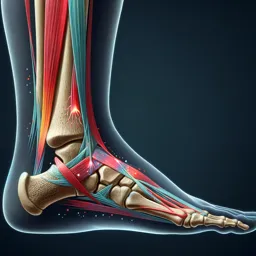Physiotherapy, also known as physical therapy, is a healthcare profession that focuses on assessing, diagnosing, treating, and preventing physical impairments, disabilities, and pain through physical means. It aims to improve a patient’s quality of life through movement and functional ability. For students considering a career in healthcare or anyone interested in maintaining physical health, understanding the basics of physiotherapy is essential.
What is Physiotherapy?
Physiotherapy involves the use of evidence-based practices to help individuals regain or improve their physical capabilities. Physiotherapists (PTs) are trained professionals who employ a variety of techniques to treat musculoskeletal, neurological, and cardiopulmonary conditions.
Key Areas of Physiotherapy
1. Musculoskeletal Physiotherapy
- Focus: Treatment of conditions affecting the muscles, bones, and joints.
- Common Issues: Back pain, arthritis, sports injuries, post-surgical rehabilitation.
- Techniques: Manual therapy, exercise prescription, and education on posture and movement.
2. Neurological Physiotherapy
- Focus: Management of neurological conditions affecting the nervous system.
- Common Issues: Stroke, multiple sclerosis, Parkinson’s disease, spinal cord injuries.
- Techniques: Functional electrical stimulation, balance training, and neurodevelopmental therapy.
3. Cardiopulmonary Physiotherapy
- Focus: Treatment of conditions affecting the heart and lungs.
- Common Issues: Chronic obstructive pulmonary disease (COPD), asthma, heart attack recovery.
- Techniques: Breathing exercises, cardiac rehabilitation, and endurance training.
Benefits of Physiotherapy
1. Pain Management Physiotherapy helps manage acute and chronic pain through techniques like manual therapy, dry needling, and therapeutic exercises.
2. Improved Mobility and Function Physiotherapists design exercise programs to improve strength, flexibility, and coordination, enhancing overall mobility and function.
3. Injury Prevention and Recovery By identifying and addressing risk factors, physiotherapy helps prevent injuries. It also aids in faster and more effective recovery from injuries.
4. Enhanced Athletic Performance Athletes benefit from physiotherapy through tailored exercise programs that enhance performance, prevent injuries, and aid in recovery.
5. Chronic Disease Management For chronic conditions like diabetes, arthritis, and heart disease, physiotherapy offers strategies to manage symptoms and improve quality of life.
How to Become a Physiotherapist
1. Education
- Obtain a bachelor’s degree in physiotherapy (BPT) or a related field. In some countries, a master’s degree (MPT) is required for advanced practice.
- Courses typically cover anatomy, physiology, biomechanics, and therapeutic techniques.
2. Clinical Experience
- Gain hands-on experience through clinical placements or internships during your studies. This practical experience is crucial for developing skills.
3. Licensing and Certification
- In most countries, physiotherapists must pass a licensing exam to practice. Certification requirements vary, so check with local regulatory bodies.
4. Continuing Education
- Stay updated with the latest research and advancements in physiotherapy through continuing education and professional development courses.
Finding a Physiotherapist
1. Referrals
- Ask for referrals from healthcare providers, friends, or family members who have had positive experiences with physiotherapists.
2. Research and Reviews
- Research local physiotherapists online and read reviews to find reputable practitioners.
3. Initial Consultation
- Schedule an initial consultation to discuss your needs and evaluate the physiotherapist’s approach and compatibility with your goals.
Conclusion
Physiotherapy is a vital healthcare profession that helps individuals improve their physical health and quality of life through targeted interventions. Whether you’re considering a career in physiotherapy or seeking treatment for a physical condition, understanding the basics of physiotherapy can guide you in making informed decisions about your health and well-being.































